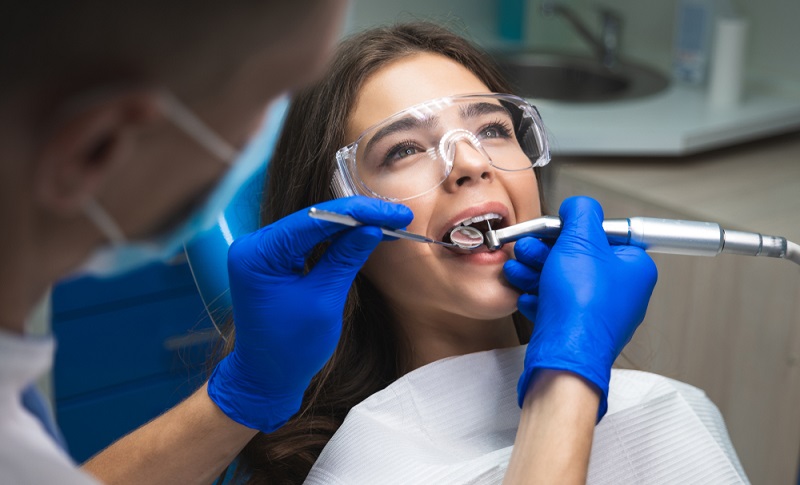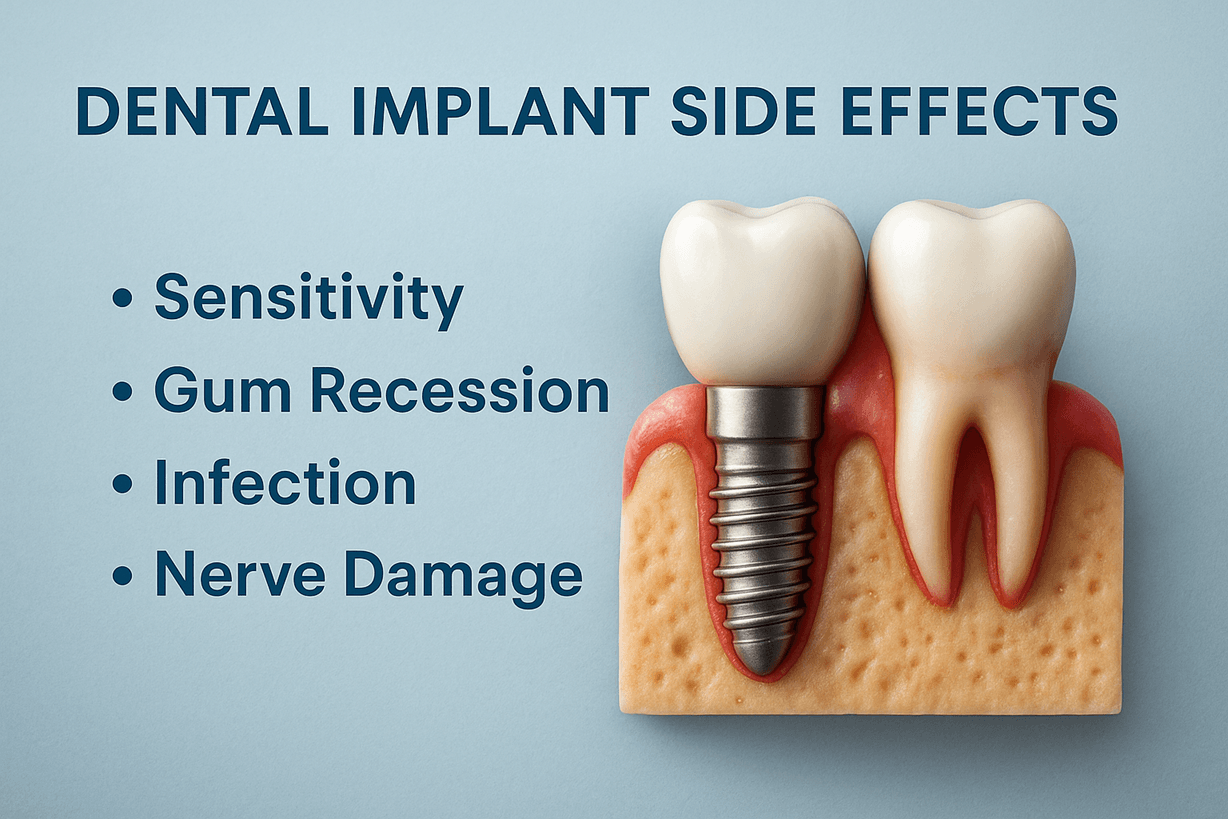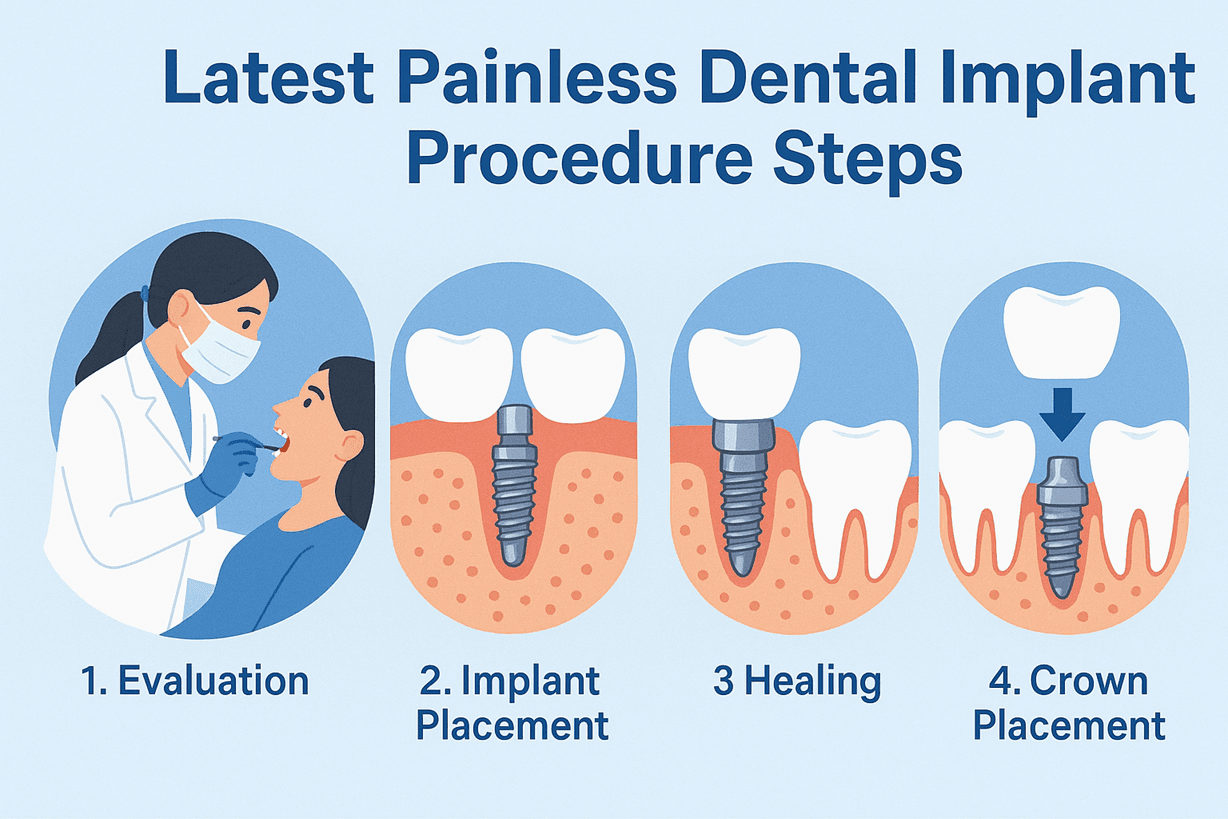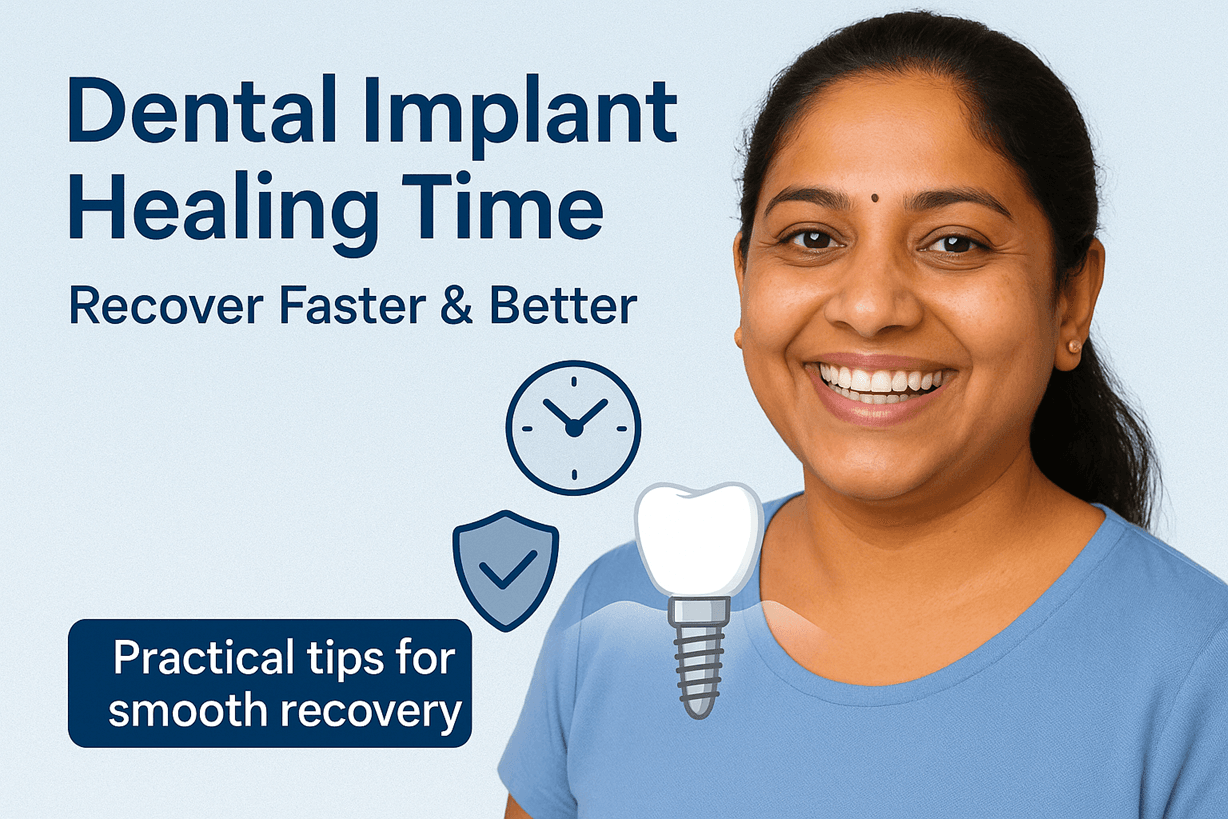Contents

Hello, you may have heard the saying ‘“A smile is the prettiest thing you can wear over and it's true.
A bright healthy smile boosts your confidence and indicates good oral hygiene. One of the fundamental aspects of maintaining a beautiful smile is regular teeth cleaning.
However, as a patient, you should know about the possible disadvantages it may entail. So let’s talk about why teeth cleaning is important and what its side effects are.
Unveiling the Potential Side Effects of Teeth Whitening
Even while brushing your teeth is typically seen as safe and advantageous, you should be aware that it can have certain adverse effects just like any medical or dental procedure.
You can make an informed decision and be ready for any discomfort that may emerge by being aware of these side effects.
Let's look at the typical adverse effects of brushing your teeth.
1. Sensitivity and Gum Irritation
- It's usual to notice greater tooth sensitivity to heat or cold stimuli after a teeth cleaning session. The removal of plaque and tartar can briefly expose the teeth and make them sensitive, which is why this discomfort arises.
- Likely if the gums were already sensitive or inflamed, some people may feel moderate gum discomfort or soreness after the operation.
- Thankfully, these side effects tend to be transient and should go away in a few days. Over-the-counter painkillers and desensitising toothpaste can help if you feel severe discomfort.
- But if the sensitivity or irritation continues, don't be afraid to ask your dental expert for guidance and more testing.
2. Bleeding Gums
- For individuals with gum disease or inflammation, the cleaning process might cause slight bleeding.
- However, this is a normal response to remove plaque and tartar from the gum line, and the bleeding gum should stop on its own.
3. Loose Teeth
- In rare cases, teeth cleaning may lead to a temporary feeling of looseness in the teeth, his sensation is usually due to the removal of plaque and tartar that were providing support to the teeth.
- The feeling of looseness should resolve as the gums heal and reattach to the teeth.
4. Damage to Dental Work
- In extremely rare cases, dental work, such as fillings or crowns, may become damaged during teeth cleaning.
- This is more likely to occur if there are pre-existing issues with the dental work or if aggressive cleaning techniques are used.
Rare But Possible: Serious Side Effects of Teeth Cleaning
While brushing your teeth is typically seen as a safe and normal dental practice, like any medical intervention, there is a very small chance of encountering major adverse effects.
1. Allergic Reaction:
- An allergic reaction to the dental materials used during the cleaning is one of the most serious consequences that could occur.
- Certain compounds, such as cleaning agents or fluoride treatments may cause an allergic reaction in some people due to their hypersensitivity.
- In these circumstances, symptoms like swelling, hives, or difficulty breathing may appear, and prompt medical care is essential to adequately manage the allergic reaction.
2. Localised infections:
- Although extremely rare, they could possibly arise after tooth cleaning.
- There is a slight chance of introducing bacteria into the oral tissues because the cleaning procedure involves moving dental tools around in the mouth.
- However, the likelihood of infection is considerably reduced by dental experts who strictly follow sterilisation measures.
- Finally, even though they are uncommon, there have been isolated instances of dental work, such as fillings or crowns, being harmed during teeth cleaning.
- Once more, this happens rarely and frequently when there are pre-existing problems with dental work or when aggressive cleaning methods are used.
It is essential to understand that dental professionals are highly trained to perform teeth cleaning safely and will carefully evaluate a patient's oral health before proceeding with the procedure to prevent any potentially serious side effects.
Who's at Risk? Factors That May Influence Side Effects
Most people experience no negative side effects from brushing their teeth, and the benefits far outweigh any concerns. However, certain factors can increase the likelihood of sensitivity or irritation:
Gum Disease or Tooth Sensitivity: Those with a history of these conditions may experience discomfort after brushing.
Underlying Medical Conditions: Patients with compromised immune systems or other health issues should inform their dental professionals, as this may affect the choice of cleaning agents or techniques.
To minimize negative effects, use a gentle brushing technique and toothpaste designed for sensitive teeth. Avoid abrasive toothpaste and vigorous brushing practices, as these can increase sensitivity.
Making Informed Decisions
As with any medical or dental procedure, it's important to weigh the pros and cons before making a decision.
For most people, the benefits of tooth cleaning—such as improved dental health and overall well-being—are significant. Any potential side effects, like sensitivity or gum inflammation, are usually mild and temporary.
Ultimately, the benefits of regular teeth cleanings, such as preventing cavities and gum disease and maintaining a bright smile, far outweigh the minor risks.
Does Teeth Cleaning Damage Teeth?
Professional teeth cleaning is completely safe and essential for maintaining a healthy smile.
Those dental superheroes use gentle techniques like scaling and polishing to remove plaque, tartar, and pesky stains, without harming your enamel.
In fact, it's a preventive measure, stopping cavities and gum disease in their tracks. So, no need to fret – regular dental cleanings will keep your grin dazzling and your oral health in tip-top shape.
Flash that smile with confidence and let your dentist work their magic!
Conclusion
Choosing a reputable and experienced dental professional is crucial in minimizing the risk of side effects and ensuring a smooth teeth cleaning process.
Dental hygienists and dentists are trained to perform teeth cleaning safely and effectively, taking into account individual oral health needs and concerns.
By understanding the potential side effects and benefits, you can approach your next teeth cleaning appointment with confidence, knowing that you are taking a proactive step towards a brighter, healthier smile.



